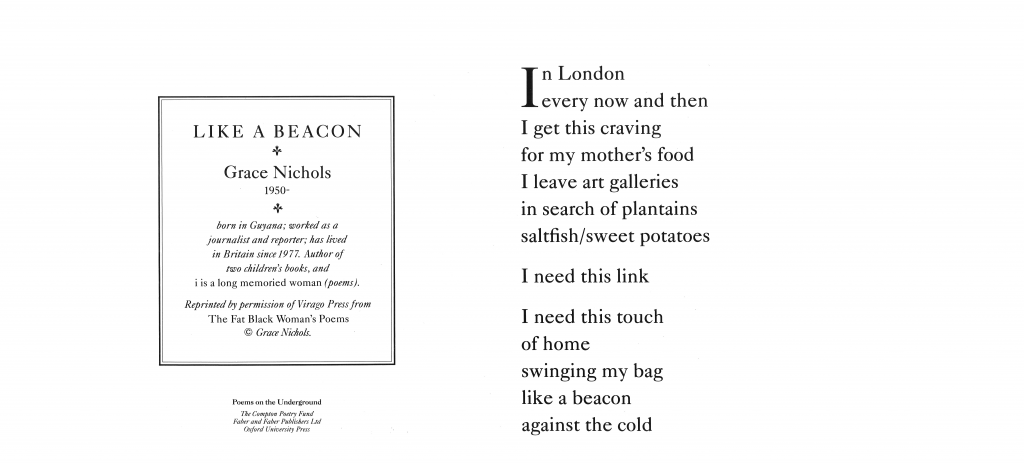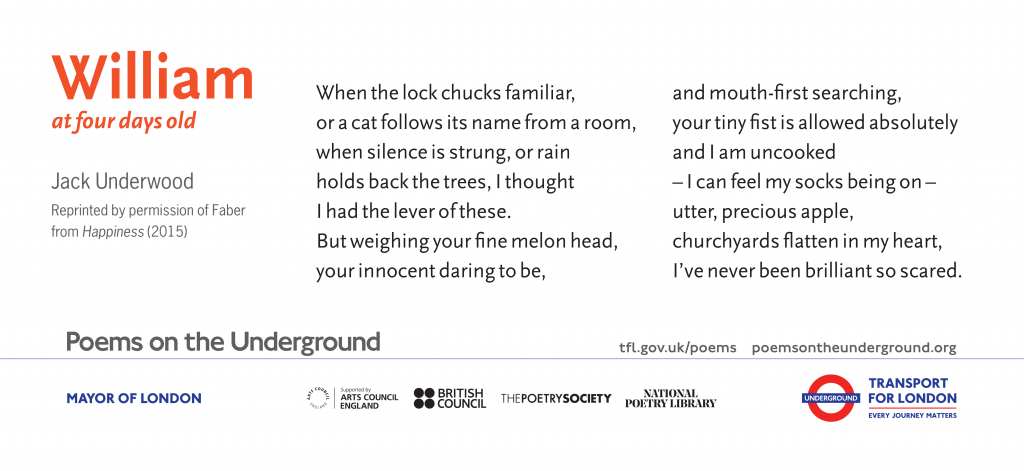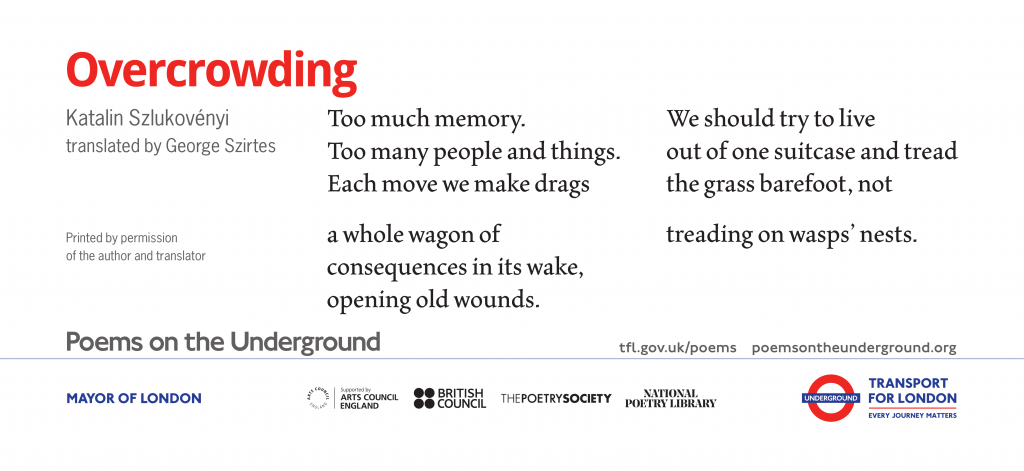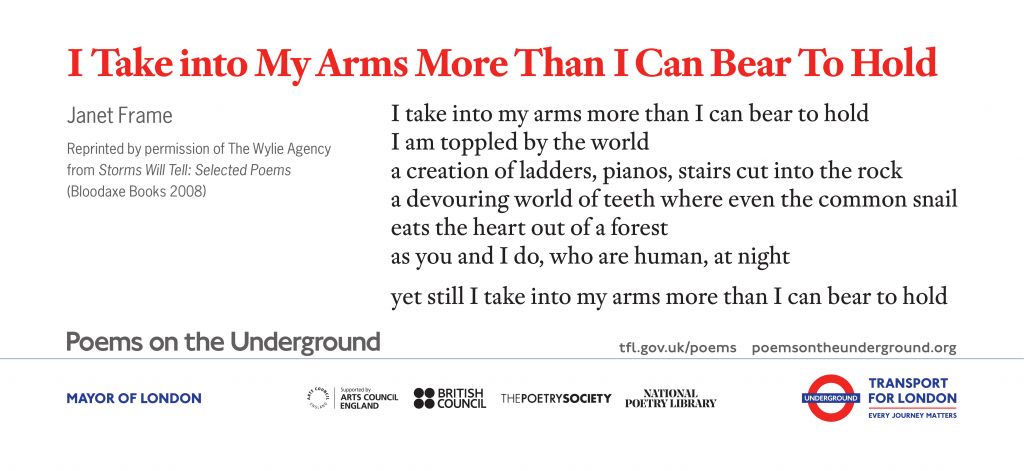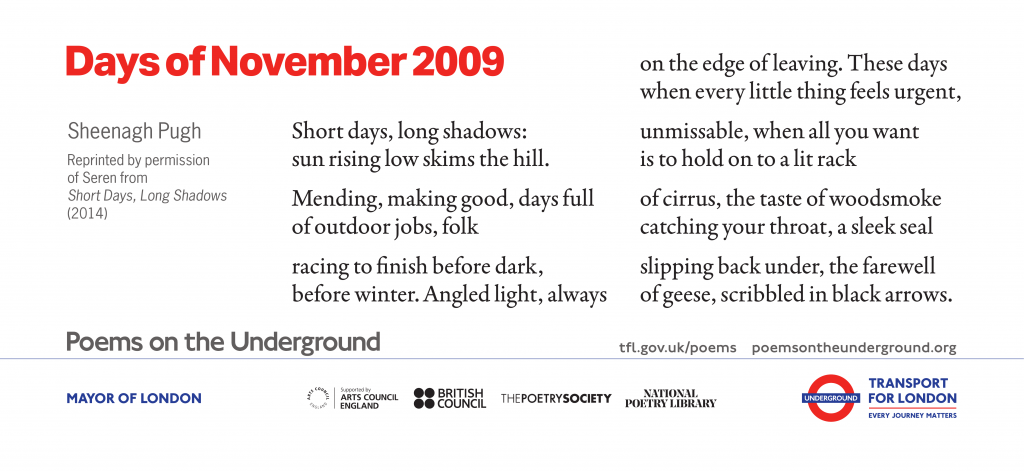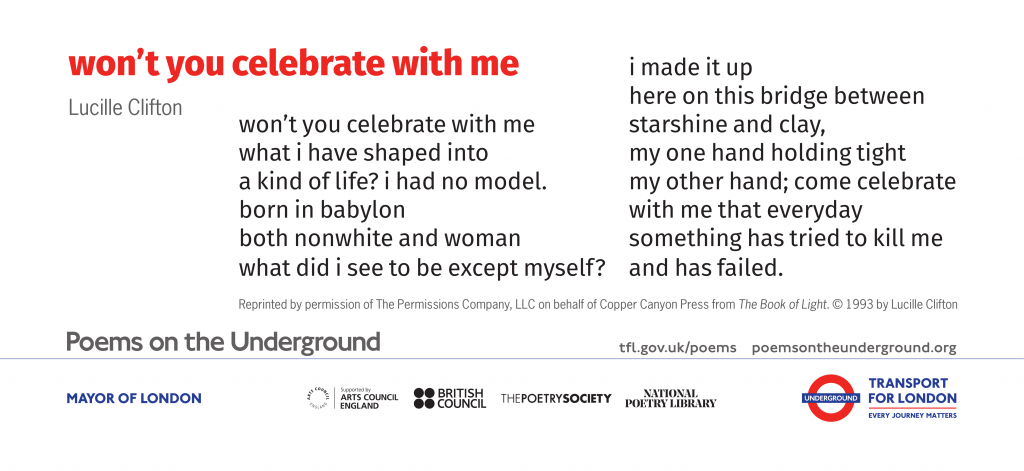Our earlier Poems of the Week are below
The Loch Ness Monster’s Song by Edwin Morgan read by Gerard Benson
Ozymandias by Percy Bysshe Shelley read by Gavin Ewart
Like a Beacon by Grace Nichols read by Merle Collins
Up in the Morning Early by Robert Burns read by Gerard Benson
Overcrowding by Katalin Szlukovényi read by George Szirtes
I take into my arms more than I can bear to hold by Janet Frame read by Imtiaz Dharker
Everyone Sang by Siegfried Sassoon read by Adrian Mitchell
Days of November 2009 read by Sheenagh Pugh
won’t you celebrate with me by Lucille Clifton read by Valerie Bloom





